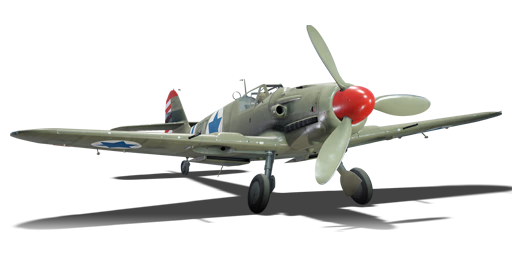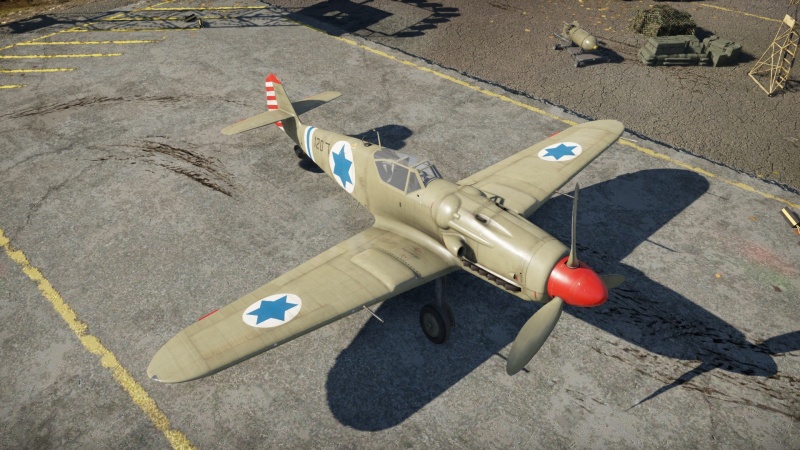Difference between revisions of "Sakeen"
(→History) (Tag: Visual edit) |
(→History) (Tag: Visual edit) |
||
| Line 135: | Line 135: | ||
== History == | == History == | ||
| − | At its inception, the Israeli Air Force sought any fighter aircraft it could acquire, however there were arms embargoes on the new state of Israel. | + | At its inception, the Israeli Air Force sought any fighter aircraft it could acquire, however there were arms embargoes on the new state of Israel making this difficult. They sought military aircraft from many sources, using buying agents to approach manufacturers across Europe. |
| − | Israel negotiated the purchase of twenty-five Avia S-199s, however they had many reliability and combat issues which limited their effectiveness. For example, the Jumo 211F was not designed to be used with a gun synchronizer, and the one which was fitted proved unreliable | + | The Czech aviation manufacturer Avia had been building Bf-109s for the Germans during WW2 and after the war continued to do so, initially producing 109Gs with the DB 605 engine, and then when the stocks of DB605s ran out, Junkers Jumo 211F engines initially purposed for the He 111. The Me 109 / Jumo 211F combination proved less than successful; the engine and propeller were designed for heavy aircraft which required torque, not fighter aircraft which require speed. Nevertheless, Avia made 559 S-199 fighters, predominately for their domestic air-force service. |
| + | |||
| + | In 1947 Israel negotiated the purchase of twenty-five Avia S-199s, which arrived at the start of the 1948 war; however they had many reliability and combat issues which limited their effectiveness. For example, the Avia S-199s Jumo 211F was not designed to be used with a gun synchronizer, and the one which was fitted proved unreliable. Subsequently shooting one's propellers was not uncommon. The aircraft did, however, provide a measure of combat capability to the early Israeli Air Force and combat experience to its early pilots. | ||
Revision as of 01:33, 4 January 2022
Contents
Description
The S-199 (Sakeen) is a rank IV Israeli fighter with a battle rating of 3.3 (AB/RB/SB). It was introduced in Update "Winged Lions".
General info
Flight performance
| Characteristics | Max Speed (km/h at 6,000 m) |
Max altitude (metres) |
Turn time (seconds) |
Rate of climb (metres/second) |
Take-off run (metres) | |||
|---|---|---|---|---|---|---|---|---|
| AB | RB | AB | RB | AB | RB | |||
| Stock | 561 | 548 | 9000 | 23.3 | 24.3 | 7.6 | 7.6 | 350 |
| Upgraded | 621 | 590 | 20.9 | 22.0 | 15.3 | 11.0 | ||
Details
| Features | ||||
|---|---|---|---|---|
| Combat flaps | Take-off flaps | Landing flaps | Air brakes | Arrestor gear |
| ✓ | ✓ | ✓ | X | X |
| Limits | ||||||
|---|---|---|---|---|---|---|
| Wings (km/h) | Gear (km/h) | Flaps (km/h) | Max Static G | |||
| Combat | Take-off | Landing | + | - | ||
| 0 | 360 | 438 | 409 | 260 | ~__ | ~__ |
| Optimal velocities (km/h) | |||
|---|---|---|---|
| Ailerons | Rudder | Elevators | Radiator |
| < 450 | < 390 | < 450 | > ___ |
Survivability and armour
Examine the survivability of the aircraft. Note how vulnerable the structure is and how secure the pilot is, whether the fuel tanks are armoured, etc. Describe the armour, if there is any, and also mention the vulnerability of other critical aircraft systems.
Modifications and economy
Armaments
Offensive armament
The Sakeen is armed with:
- A choice between two presets:
- 2 x 13 mm MG 131 machine guns, nose-mounted (250 rpg = 500 total) + 2 x 7.92 mm MG 17 machine guns, wing-mounted (300 rpg = 600 total)
- 2 x 13 mm MG 131 machine guns, nose-mounted (250 rpg = 500 total) + 2 x 20 mm MG 151 cannons, wing-mounted (135 rpg = 270 total)
Suspended armament
The Sakeen can be outfitted with the following ordnance:
- Without load
- 4 x 70 kg SD70 bombs (280 kg total)
- 4 x 50 kg SD50 bombs (200 kg total)
- 4 x 50 kg SC50JA bombs (200 kg total)
Usage in battles
Describe the tactics of playing in the aircraft, the features of using aircraft in a team and advice on tactics. Refrain from creating a "guide" - do not impose a single point of view, but instead, give the reader food for thought. Examine the most dangerous enemies and give recommendations on fighting them. If necessary, note the specifics of the game in different modes (AB, RB, SB).
Manual Engine Control
| MEC elements | ||||||
|---|---|---|---|---|---|---|
| Mixer | Pitch | Radiator | Supercharger | Turbocharger | ||
| Oil | Water | Type | ||||
| Not controllable | Controllable Not auto controlled |
Controllable Auto control available |
Controllable Auto control available |
Separate | Not controllable 1 gear |
Not controllable |
Pros and cons
Pros:
- Good firepower with the upgraded guns
Cons:
- Poor climb performance
- Ineffective stock guns
- Terrible energy retention
- Overheats very quickly under WEP
History
At its inception, the Israeli Air Force sought any fighter aircraft it could acquire, however there were arms embargoes on the new state of Israel making this difficult. They sought military aircraft from many sources, using buying agents to approach manufacturers across Europe.
The Czech aviation manufacturer Avia had been building Bf-109s for the Germans during WW2 and after the war continued to do so, initially producing 109Gs with the DB 605 engine, and then when the stocks of DB605s ran out, Junkers Jumo 211F engines initially purposed for the He 111. The Me 109 / Jumo 211F combination proved less than successful; the engine and propeller were designed for heavy aircraft which required torque, not fighter aircraft which require speed. Nevertheless, Avia made 559 S-199 fighters, predominately for their domestic air-force service.
In 1947 Israel negotiated the purchase of twenty-five Avia S-199s, which arrived at the start of the 1948 war; however they had many reliability and combat issues which limited their effectiveness. For example, the Avia S-199s Jumo 211F was not designed to be used with a gun synchronizer, and the one which was fitted proved unreliable. Subsequently shooting one's propellers was not uncommon. The aircraft did, however, provide a measure of combat capability to the early Israeli Air Force and combat experience to its early pilots.
Describe the history of the creation and combat usage of the aircraft in more detail than in the introduction. If the historical reference turns out to be too long, take it to a separate article, taking a link to the article about the vehicle and adding a block "/History" (example: https://wiki.warthunder.com/(Vehicle-name)/History) and add a link to it here using the main template. Be sure to reference text and sources by using <ref></ref>, as well as adding them at the end of the article with <references />. This section may also include the vehicle's dev blog entry (if applicable) and the in-game encyclopedia description (under === In-game description ===, also if applicable).
Media
Excellent additions to the article would be video guides, screenshots from the game, and photos.
See also
Links to the articles on the War Thunder Wiki that you think will be useful for the reader, for example:
- reference to the series of the aircraft;
- links to approximate analogues of other nations and research trees.
External links
Paste links to sources and external resources, such as:
- topic on the official game forum;
- other literature.
| Israel fighters | |
|---|---|
| Bf 109 | Sakeen |
| P-51 | P-51D-20-NA |
| Spitfires | Spitfire Mk IXc · Weizman's Spitfire LF Mk.IXe · Spitfire Mk.IX (CW) |





